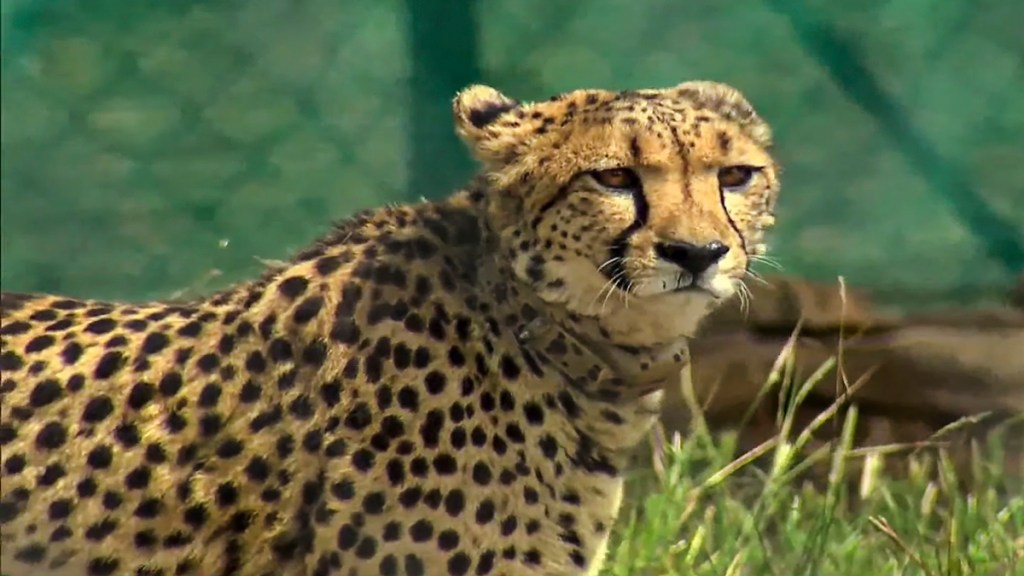From Namibia, the eight cheetahs seemed to be gradually adjusting to the new environment. On Sunday, they were seen walking in their quarantine enclosure and absorbing the ambience with interest. They were released into Kuno National Park (KNP) of Madhya Pradesh on Saturday. On Saturday, PM Narendra Modi released these cheetahs into a quarantine enclosure at the KNP in the Sheopur district. It is part of a project to revive the population of the animals in the country. The creatures became extinct in India in 1952.
At the time of their release, the big cats looked hesitant. They took in the new surroundings with a look of curiosity mixed with bafflement.
As the door of its cage slid open, before stepping out onto the grass, the first of the eight cheetahs hesitated. On their second day in India, the initial hesitation appeared to be fading away.
On Sunday, at their quarantine enclosure in the KNP, all eight cheetahs (five female and three male) looked fit and fine. They were seen roaming and resting in their new habitat. These fastest running land animals were seen looking around the new surroundings.
ALSO READ Project Cheetah: What happened to Indian Cheetahs 7 decades ago?
These animals are believed to take food once in three days. They were given buffalo meat before they left Namibia for India two days ago, KNP director Uttam Sharma told PTI. “So they will be given food today,” he added.
The cheetahs are active and in good health, Sharma said.
“We have not given new names to them. Right now we are not thinking over it. They were given names in Namibia,” the director said.
On Friday night, the transcontinental trip of more than 8,000 km of the eight cheetahs from Namibia had begun. They are aged between 30 to 66 months.
In 1947, the last cheetah died in the country in the Korea district in present-day Chhattisgarh. In 1952, in India, the big cats were declared extinct.

